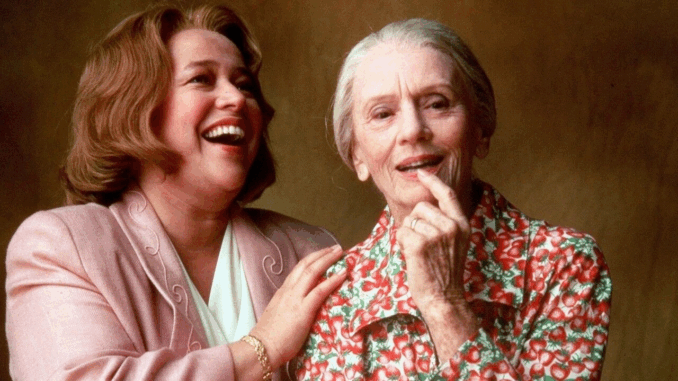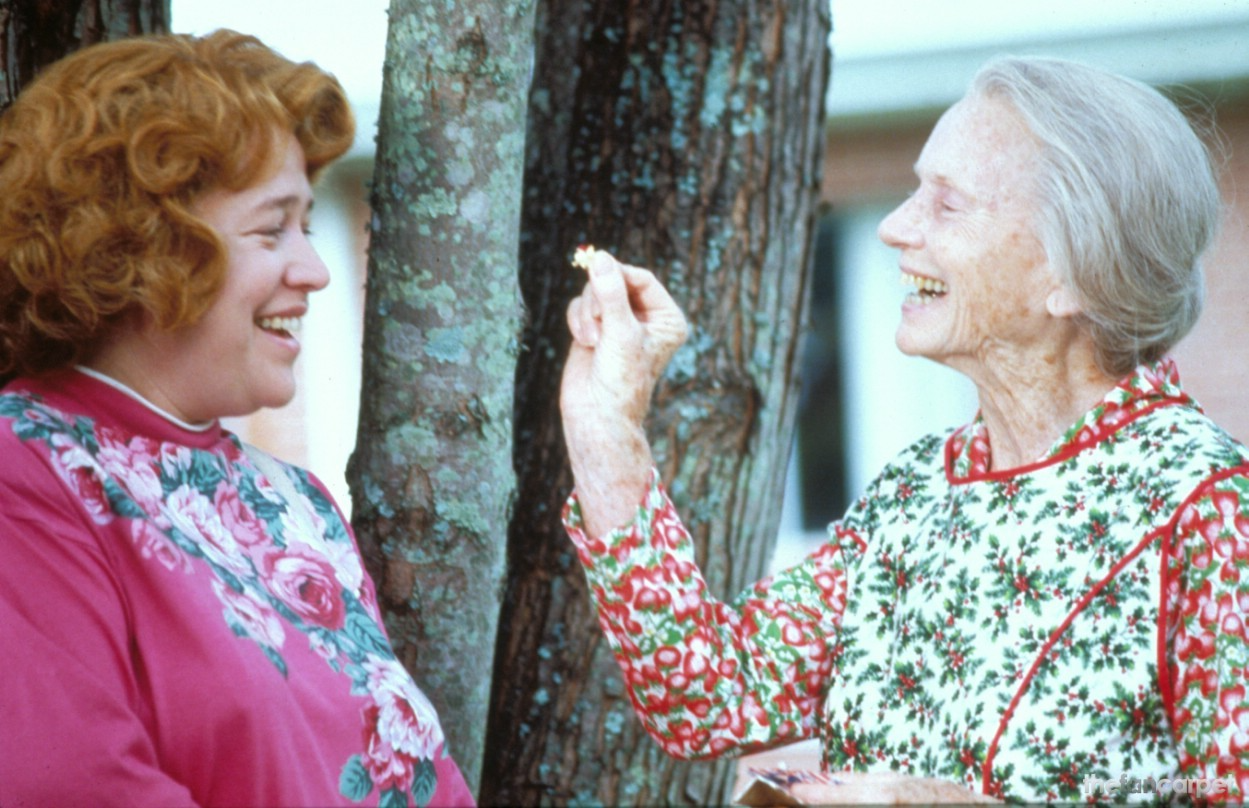
In a quiet corner of a Southern nursing home, two women — one aging, one fading — find each other. One carries stories, the other carries wounds. And between them, a bridge forms — not of blood, but of recognition. This is the subtle brilliance of Fried Green Tomatoes: it shows us that healing doesn’t always come from within. Sometimes, it walks into our lives wearing orthopedic shoes, humming old hymns, and handing us a jar of pickled beets.
The relationship between Ninny Threadgoode and Evelyn Couch is more than friendship. It is an intergenerational rescue mission — a transmission of wisdom, memory, and rebellion that reawakens both women.
When Time Becomes Medicine
Evelyn first meets Ninny reluctantly — a bored housewife visiting her husband’s aunt, trapped in a hospital waiting room and in her own life. Ninny, in contrast, is lively, eager to talk, and completely overlooked by the world around her.
At first glance, Ninny seems like a chatty old lady. But what she brings Evelyn is a time capsule filled with fire. Through stories of Idgie, Ruth, and the Whistle Stop Café, she doesn’t just entertain — she passes down a legacy of resistance and joy. It’s oral history as healing.
Where therapy fails, Ninny succeeds — not with psychological jargon, but with connection.
Why Intergenerational Relationships Matter
In our increasingly age-segregated world, the relationship between older and younger women is often lost — replaced by stereotypes: the “out-of-touch elder,” the “ungrateful youth.” Fried Green Tomatoes rebels against that. It suggests that the older generation carries emotional maps — road signs etched in stories, laughter, scars, and resilience.
For Evelyn, Ninny offers:
-
Perspective: Showing her that other women have survived worse and still danced in their kitchens.
-
Permission: To be angry, to be bold, to live louder.
-
Presence: A kind of maternal affection without judgment or demand.
And for Ninny?
-
Audience: Someone to remember with.
-
Agency: A chance to matter again.
-
Connection: Proof that even as the world forgets her, her stories — and spirit — live on.
This isn’t just mentorship. It’s emotional inheritance.

Evelyn’s Healing, Powered by Ninny
Evelyn doesn’t transform because someone told her to. She transforms because someone saw her.
Ninny doesn’t lecture or criticize. She simply shares — and in doing so, models an unapologetic womanhood. As the tales of Ruth and Idgie unfold, Evelyn sees parallels to her own despair and feels the first flickers of change.
She stops apologizing for her age. She dares to be angry. She starts saying no — and yes — with conviction. She becomes her own version of a “warrior queen,” rooted in the soil of stories told over coffee and lemon pie.
Without Ninny, Evelyn might have just aged into the background. With her, she comes into bloom.
For Ninny, A Legacy Reclaimed
Often overlooked in the discussion is how much Evelyn gives Ninny in return. In sharing the stories, Ninny isn’t just giving history — she’s giving herself. And Evelyn, by listening and caring, tells Ninny: You still matter.
For a woman nearing the end of life, that’s a kind of salvation.
Why These Bonds Are Essential Today
In a culture obsessed with youth, the voices of older women are often silenced. But Fried Green Tomatoes reminds us: the past isn’t just behind us — it’s inside us, waiting to be passed down like a treasured recipe or an untold secret.
Intergenerational relationships:
-
Break cycles of silence.
-
Offer real, lived proof that pain can become strength.
-
Create emotional continuity in a world of constant change.
In Evelyn and Ninny’s bond, we see two women redefining aging, storytelling, and sisterhood.
